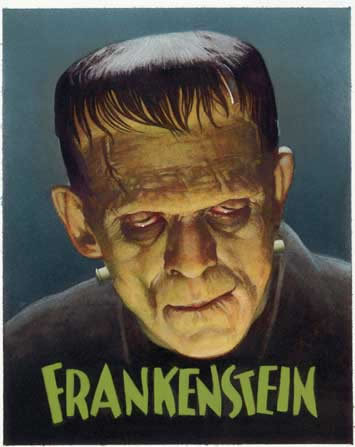"He sprung from the cabin window, as he said this, upon the ice-raft which lay close to the vessel. He was soon borne away by the waves, and lost in darkness and distance." (page 166)
Frankenstein did not end how I expected it to. I did expect the death of Elizabeth for sure; I thought she would be killed as soon as Victor made a comment in the beginning of his story explaining her presence. As the story continued to progress, I also figured Victor would die at the end of the novel. The internal conflict eventually caused his health to completely give up. It was foreshadowed by the affect stress had on him at the beginning of his story. In saying all of that, I did not expect the monster to ever be witnessed by anyone other than Victor. When he all of the sudden pops up in Walton's story, it took me a second to recognize what was happening and the gravity of the monster appearing. It weirded me out that the stories were intertwining; I thought the monster would just remain in Victor's story. I also felt as if the ending contained the most action which seemed pretty weird because the rest of the novel was so detailed; I think Shelley could have spent less time working up to the ending and a little more time on the conclusion since it did seem a little rushed. Although, that could be because I was definitely not expecting a few scenes as I said. But, I digress. The ending was the best part of the book, and not because it was the literal ending, but rather because of how it ended.
